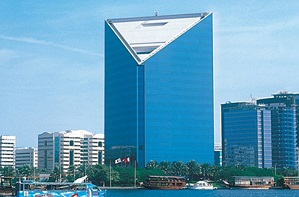
A study by the Dubai Chamber of Commerce and Industry has revealed that Gulf entities have provided at least US$30bn of funding, at current prices, to African infrastructure over the past decade, which amounts to between 7 percent and 10 percent of total inflows, of which approximately US$15bn in loans and grants from Gulf development agencies and approximately US$15bn in direct investments.
The study was announced today during a press conference held at Dubai Chamber of Commerce and Industry. Prepared in collaboration with the Economist Intelligence Unit (EIU) ahead of the Africa Global Business Forum on the 1st and 2nd of October, the study expected that annual contributions are likely to average US$5bn in the coming years, which equates to at least 10% of the total average annual inflows to this sector It also revealed that Gulf funding for African infrastructure has focused on North Africa, which has received the bulk of aid (about 65 percent of the total) and also a large share of the direct private investment (60 percent). There has been a focus on countries such as Djibouti and Senegal.
However, there are increasingly exceptions to this rule, seen for example with the Saudi electricity company ACWA Power focusing its efforts mainly in South Africa and telecom companies exploring increasing swathes of East and West Africa. To date, there has been relatively little Gulf investment in the continent’s fast-growing economies of Angola, Ethiopia and Nigeria, which have attracted considerable infrastructure funding from Brazilian and Chinese entities, as well as in the case of Nigerian companies based in the US and Europe.
Gulf aid and investments are diversified among different infrastructure projects in Africa. According to the study, more than half of Gulf aid has gone to transport projects, mainly road building, with about 30 percent on power (ranging from hydro-electric dams to rural electrification) and 15 percent on water projects, but very little on telecoms infrastructure. By contrast, the telecoms sector has been the main infrastructure focus of the GCC private sector, followed by ports and, increasingly, power generation. Gulf investors have been less involved with roads and water infrastructure because of a lack of potentially profitable projects.
In 2012, Arab funding, both public and private, was equivalent to over 10 percent of total external funding. This was comparable to funding from European donors and more than the US$4bn from the World Bank. However, it was dwarfed by Chinese spending of $13bn.
Yet while Chinese entities have invested far more in African infrastructure, a direct comparison is problematic. For Chinese companies, infrastructure deals in Africa are often part of broader commercial engagements with an eye on African resources. As such, the infrastructure is often a sweetener to win resource concessions. But Africa’s natural assets are not of such vital interest to Gulf countries (although some Gulf firms are investing in the sector).
Hamad Buamim, President and CEO, Dubai Chamber, noted this study highlights key facts about the economic reality in Africa and business opportunity. And due to cultural and historical ties to Africa, GCC investors are well positioned to invest in infrastructure in Africa.
Buamim said, “Opportunities are not limited to public and large companies, small companies are also well positioned to invest. Dubai Chamber’s study has revealed that given the perceived risks associated with mega-projects in several African markets, smaller-scale projects have becoming increasingly more appealing, especially in the energy industry.
“Gulf investors must take care to differentiate between the region’s many countries, rather than view them as a homogenous “African” market. The Africa Global Business Forum, organised by Dubai Chamber, will further highlight the economic and investment realities and opportunities in the different African markets,” he added.
The study presented a number of challenges which affect the investment decision in Africa especially when it comes to infrastructure. It also highlighted a number of recommendations to tackle the investment challenges in infrastructure in Africa and manage risks.
Source : WAM News Agency for United Arab Emirates












